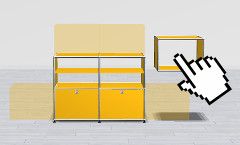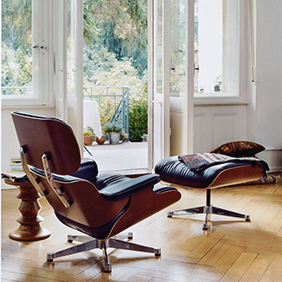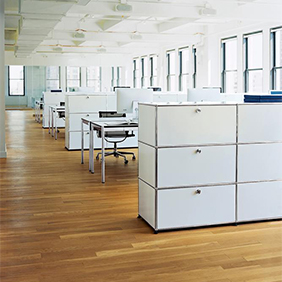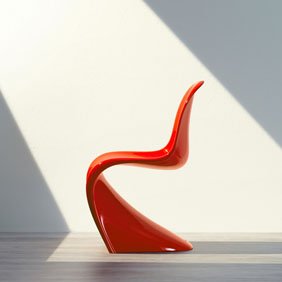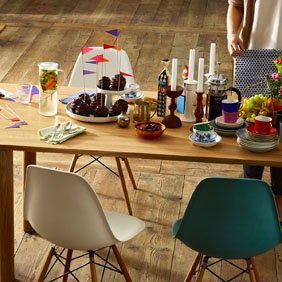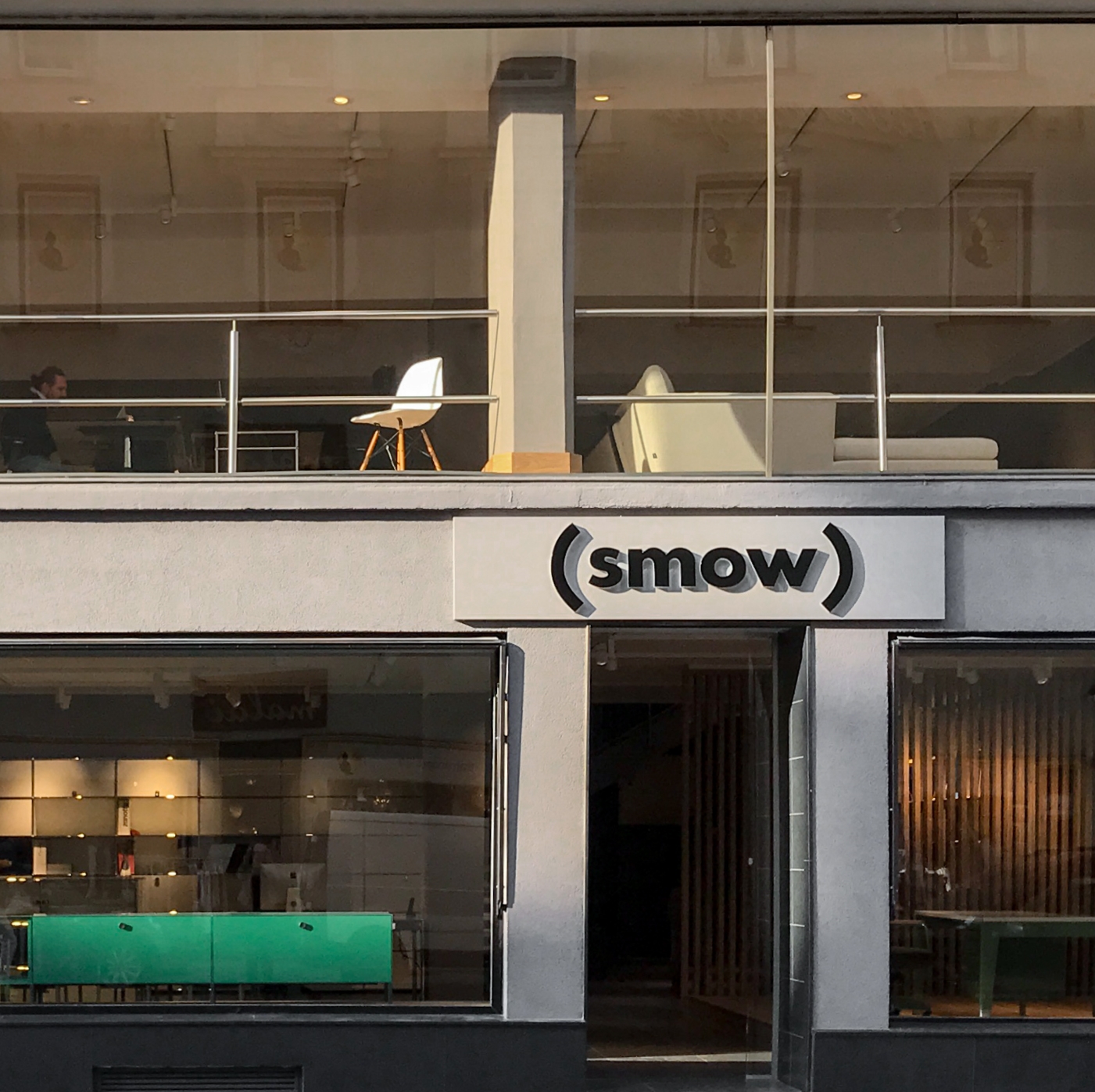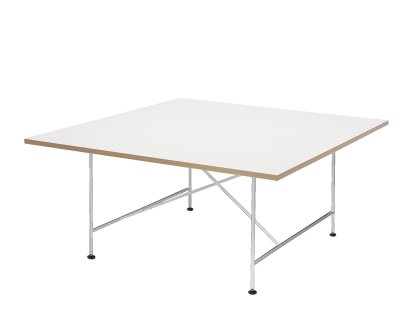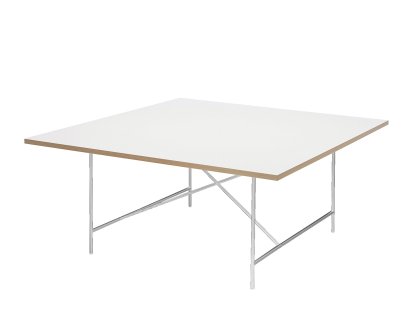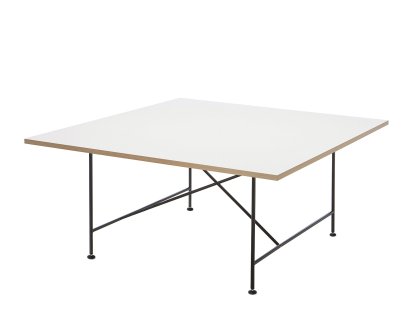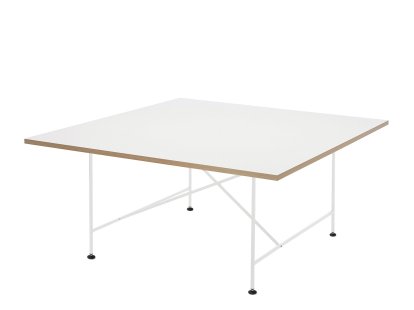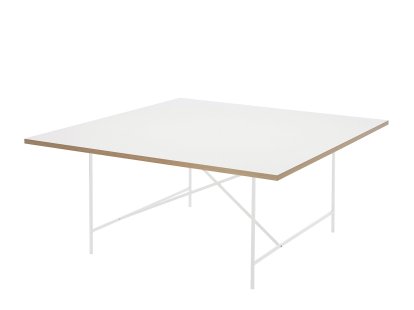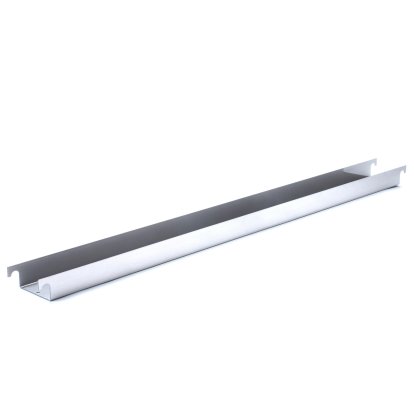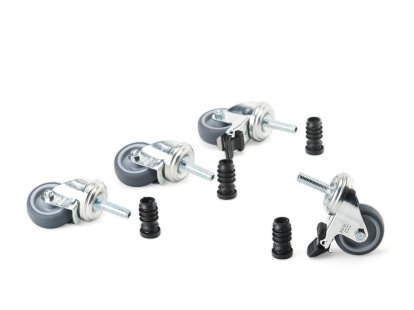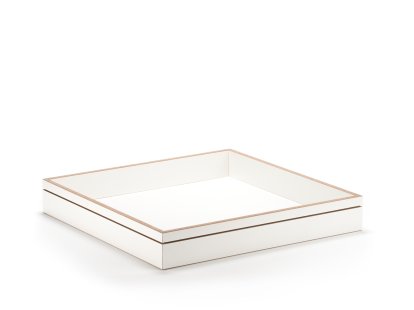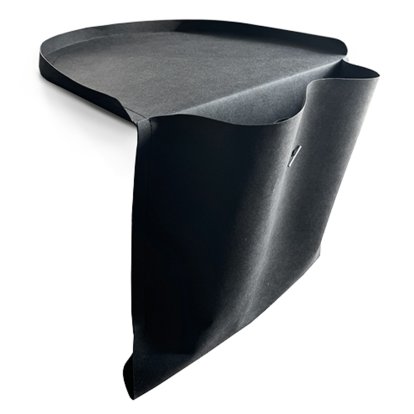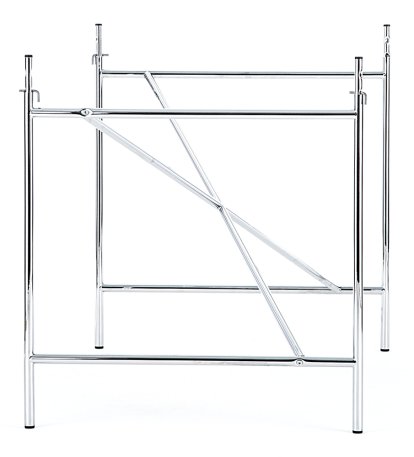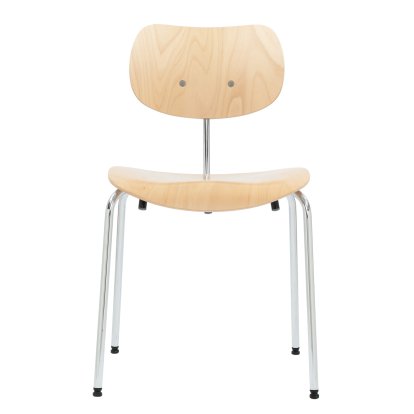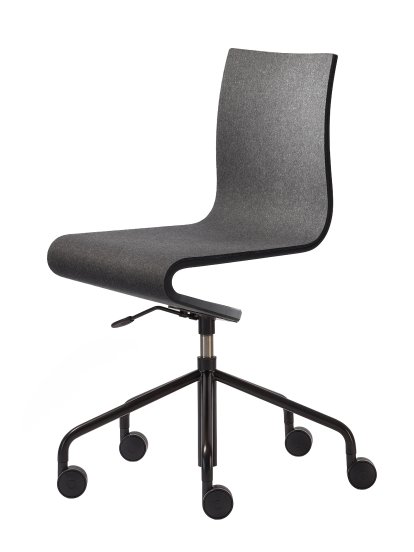Eiermann 1 Conference Table, White melamine with oak edge, Black, Without Leveling Feet (H 72cm)
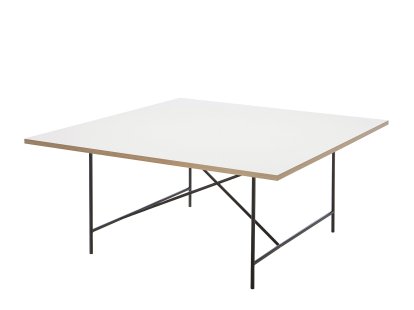
has been added to your wishlist.
Details
| Product type | Conference table |
| Dimensions | 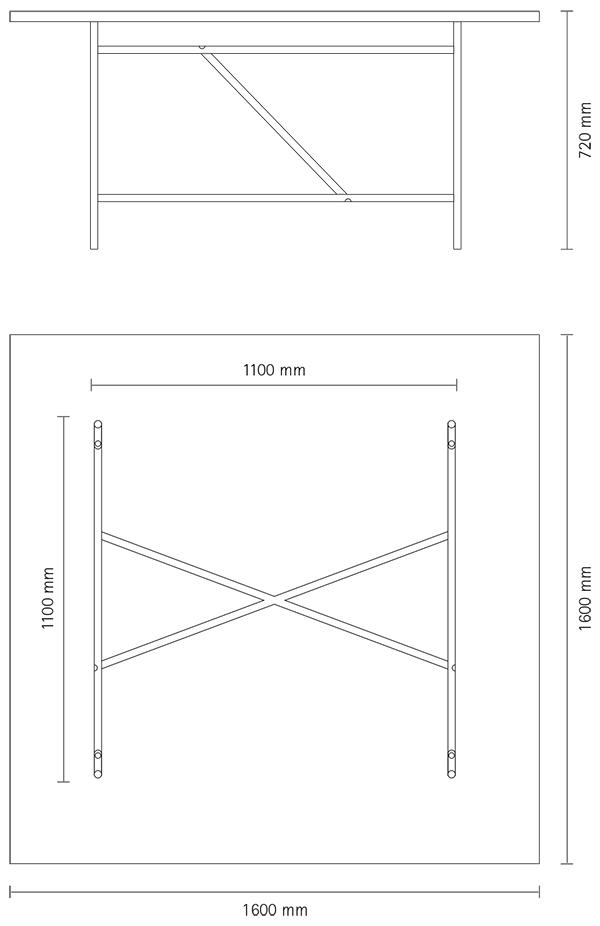 Height: 72 cm (74 - 76 cm with leveling feet) |
| Colours | Frame   |
| Material | Frame: steel, lacquered or chrome plated Table top: Melamine with oak edge |
| Functions & Properties | Table top fixed to table frame with screws No height adjustment possible (except when using optional levelling feet) |
| Delivery includes | Table frame and table top |
| Care | We recommend cleaning with a soft, slightly damp, cotton cloth. Any discolouration and colour residues from the galvanisation process that may have arisen during the production of chrome-plated frame parts do not represent a material defect, are not dangerous to health and have no influence whatsoever on the function/longevity of the table frame. If the deposits cannot be removed with a mild, standard household scouring milk, they can be easily removed with a paint cleaner / polish (e.g. from car accessories) using a soft cloth. We recommend that the cleaning is first carried out on a concealed area. |
| Warranty | 24 months |
| Product family | Eiermann tables |
| Accessories | Accessories for Eiermann tables |
| Product datasheet | Please click on picture for detailed information (ca. 0,3 MB).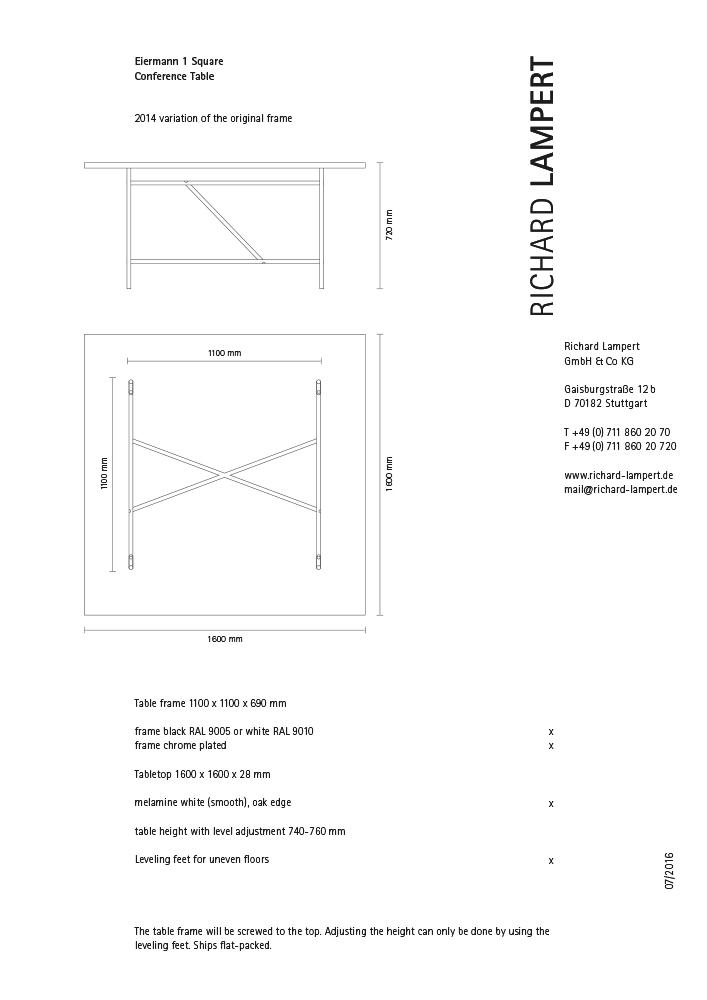 |
The design of the Eiermann table frame was developed by the architect Egon Eiermann, one of the most influential Germany architects of the 1920s to the 1960s. Created in 1953 the frame reflects Eiermann's interpretation of a modern, functional design. The Eiermann frame is stabilised by an angled crossbar, a feature which is not only structurally important but aesthetically defining and which allows the design to exude a clarity and ease typical for Egon Eiermann's work as an architect. The crossbar can be placed either in the centre or offset set in the frame. Not least because of the importance of its creator the Eiermann table frame is very popular in architectural circles and is therefore sometimes called the architect's table. However the Eiermann table doesn't just belong in architects offices, rather an Eiermann table belongs anywhere looking for a timeless, classic example of post war European design.
Production
Since the 1990s the Eiermann Table Frames have been produced by the Stuttgart designer furniture manufacturer Richard Lampert. Company founder Richard Lampert acquired in 1995 the rights to the manufacturer for the all but forgotten original design and brought the desk classic back on the market. Lampert produces the Eiermann Frames in various sizes and colours, including a special version for children. The term Eiermann Table Frame 1 serves to distinguish Eiermann's 1953 frame from the that developed in 1965 by the workshop manager of the Technical University of Karlsruhe, where Eiermann taught. The Eiermann Table Frame 2 is, although visually very similar, technically not quite as sophisticated as the Eiermann original and licence-free. In addition to the table frames Eiermann 1 and Eiermann 2 Richard Lampert also produces Eiermann table tops for the Eiermann Tables Frames.
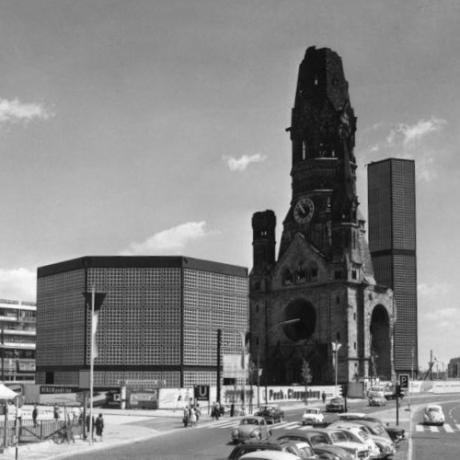
One of Egon Eiermann's better known buildings: The Neue Kaiser-Wilhelm-Gedächtniskirche in Berlin. Source: Bundesarchiv-B 145 Bild-P060400
Manufacturer
Richard Lampert founded his contemporary furniture company in 1993. Lampert, who had already gained extensive experience in the furniture business, wanted to start a company which offered an eclectic mix of of classic and contemporary design. Although particularly well known and celebrated for his re-editions of Egon Eiermann furniture, in particular the Eiermann table frames, Richard Lampert offers an internationally relevant portfolio of products from designers as varied as Herbert Hirche, Peter Horn or Otto Sudrow and has recently launched a very successfully children's collection created by young international designers.
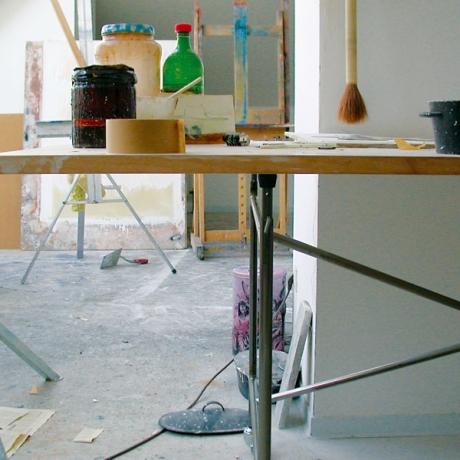
The Eiermann table is produced by the Stuttgart based furniture manufacturer Richard Lampert.
Designer
Egon Eiermann was born on 29 September 1904 in Neuendorf, today part of Babelsberg, and died on July 19, 1970 in Baden-Baden. After studying architecture at the Technical University Berlin, Eiermann worked between the 20s and 60s as a freelance architect, initially in Berlin but later globally. Among his most important works is without question the New Kaiser Wilhelm Memorial Church in Berlin. His first commercial furniture designs arose in the 1950s in response to the need for post-war furnishing solutions. Typical of his works is a simple, austere geometry and an immediate visibility of function. In addition to his famous Eiermann table frame Egon Eiermann also designed several chairs which have gone on to define furniture history.
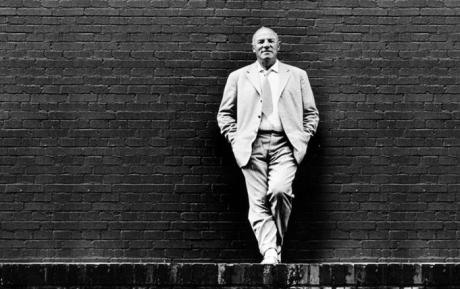
The Architecht and designer Egon Eiermann.
Historical Context
Eiermann's work falls in that age of modernism which is often referred to as "second modernity". Egon Eiermann began his work as an architect in the 1920s and worked almost until his death in 1970 as an architect and furniture designer. Although his work thus falls within the period of the Bauhaus he is not considered in this movement. It was indeed only in the 1950s in context of study trips to the United States that he first met the likes of Walter Gropius, Marcel Breuer and Ludwig Mies van der Rohe. Unaffected by the problems of the Second World War, in post-war Germany Egon Eiermann became one of the nation's most important architects, his a lightness and freshness promoting and progress symbolizing the hope of a better brighter future. In addition, post-war Egon Eiermann was the first German designer who developed furniture collections that could hold their own against the international competition. The architect and designer Egon Eiermann is now considered a leading figure of the second modernity, is designs are closely related to functionalism, and in this context, the concept of "good form" which defined German design of the 1950s, 60s and 70s.
Eiermann Table: Accessories

Cable trough - For a little order under your desk
Safely and securely store cables and similar objects under your Eiermann Table with the cable trough. Available ina range of sizes the for all Eiermann Table's the cable trough simply hangs in the frame and solves all those cable salad problems.
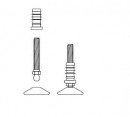
Height adjustable feet - The simple solution for uneven floor surfaces
Uneven floor surfaces can make correctly positiong a desk a tiring business. The Richard Lampert height adjustable feet are simply screwed into the Eiermann table frame and can even out differences of between 20 and 40 mm. Thus ensuring the work surface you deserve. Regardless of where you work.
Industrial castors - For a mobile workplace
The industrial castors turn a static Eiermann table frame into mobile office element that can be effortlessly transferred from A to B and back again as required. And with each set conatining two castors with a brake, security is also included. Through the castors the table top height is raised by 70 mm
Eiermann Table Frame 1 vs Eiermann Table Frame 2
The Eiermann table frame 1 is an undisputed classic of contemporary furniture design. Designed in 1953 by Egon Eiermann the table frame is composed of two steel tube side elements joined, and stabilised, by a diagonally attached crossbar. Utilising a minimum of material to achieve a maximum of stability in an object that remains true to Eiermann's aesthetic principles, the Eiermann table frame 1 is as unique in its construction as it is flexible in its uses.
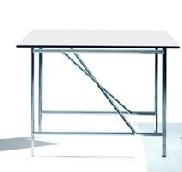
Eiermann Table Frame 1
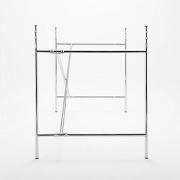
Eiermann Table Frame 2, offset
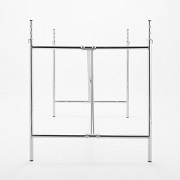
Eiermann Table Frame 2, centred
The adapted version of the table frame with the vertical supporting crossbar was developed in 1965 and is, as with the original model, known as the Eiermann table frame. Indeed over the years the name Eiermann table frame 2 has established itself in common parlance to distinguish the version designed directly by Egon Eiermann and the adapted version.
In direct comparison of both frames one instantly realises that the Eiermann 1 typifies Egon Eiermann's attention to fine detail more than the rather industrial Eiermann 2.

